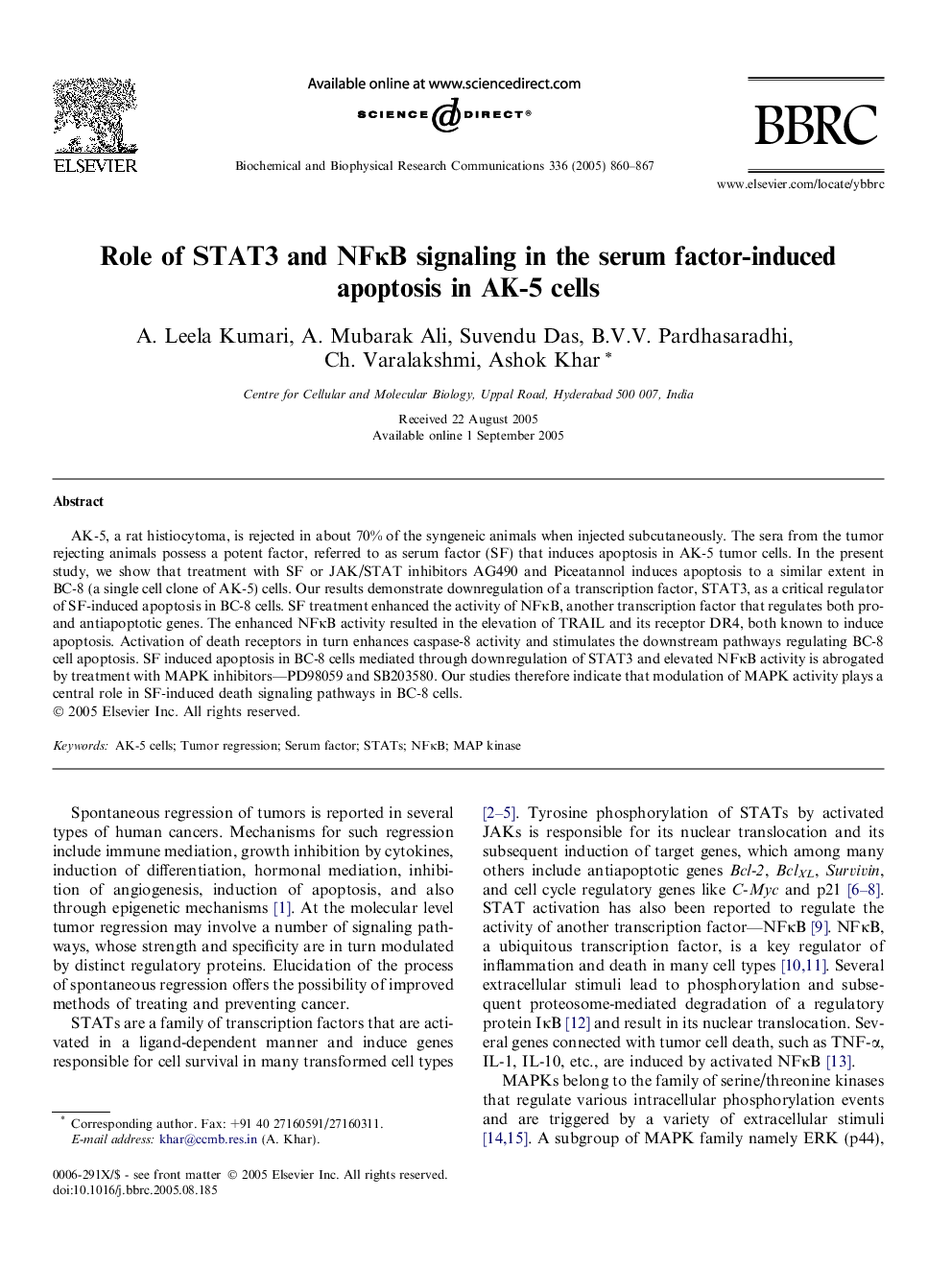| Article ID | Journal | Published Year | Pages | File Type |
|---|---|---|---|---|
| 10767990 | Biochemical and Biophysical Research Communications | 2005 | 8 Pages |
Abstract
AK-5, a rat histiocytoma, is rejected in about 70% of the syngeneic animals when injected subcutaneously. The sera from the tumor rejecting animals possess a potent factor, referred to as serum factor (SF) that induces apoptosis in AK-5 tumor cells. In the present study, we show that treatment with SF or JAK/STAT inhibitors AG490 and Piceatannol induces apoptosis to a similar extent in BC-8 (a single cell clone of AK-5) cells. Our results demonstrate downregulation of a transcription factor, STAT3, as a critical regulator of SF-induced apoptosis in BC-8 cells. SF treatment enhanced the activity of NFκB, another transcription factor that regulates both pro- and antiapoptotic genes. The enhanced NFκB activity resulted in the elevation of TRAIL and its receptor DR4, both known to induce apoptosis. Activation of death receptors in turn enhances caspase-8 activity and stimulates the downstream pathways regulating BC-8 cell apoptosis. SF induced apoptosis in BC-8 cells mediated through downregulation of STAT3 and elevated NFκB activity is abrogated by treatment with MAPK inhibitors-PD98059 and SB203580. Our studies therefore indicate that modulation of MAPK activity plays a central role in SF-induced death signaling pathways in BC-8 cells.
Related Topics
Life Sciences
Biochemistry, Genetics and Molecular Biology
Biochemistry
Authors
A. Leela Kumari, A. Mubarak Ali, Suvendu Das, B.V.V. Pardhasaradhi, Ch. Varalakshmi, Ashok Khar,
